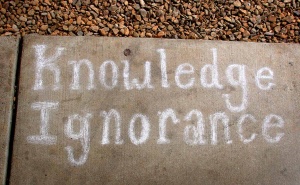Learning in a digital age/LiDA103/Defining OER/Ownership of ideas
From WikiEducator
| “ | If you have an apple and I have an apple and we exchange these apples then you and I will still each have one apple. But if you have an idea and I have an idea and we exchange these ideas, then each of us will have two ideas. | ” |
| —George Bernard Shaw | ||
| “ | Today, the process for capitalizing - either financially or socially - on innovation and creativity is staggering under the strain of a digital revolution of a speed and scale never seen before. At a time when many of their most valuable assets can be shared and exchanged easily, businesses and governments [are] scrambling to redefine who owns what. | ” |
| —James Kanter, New York Times, 2005[1] | ||
This sub-section on the ownership of ideas sets the context for our global mission to return to the core business of education, which is to share knowledge freely.
Views on the ownership of ideas in a digital world
Notes
- ↑ Kanter, J. (3 October 2005). A new battlefield: Ownership of ideas. The New York Times.
- ↑ Moglen, E. (Speaker). and Rainaud, C. M. (Producer). (17 December 2004). The system of ownership of ideas [Video file]. Turin, Italy: ITC-ILO. You can download a copy of the full video from the Internet Archive or read the full transcript.
- ↑ Lessig, L. (2 March 2010). Lawrence Lessig: Reexamining the remix [Video file]. New York: TEDxNYED. The full talk can be viewed here.
